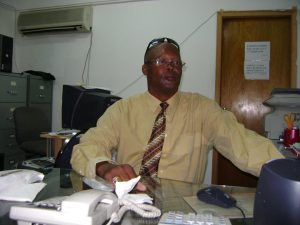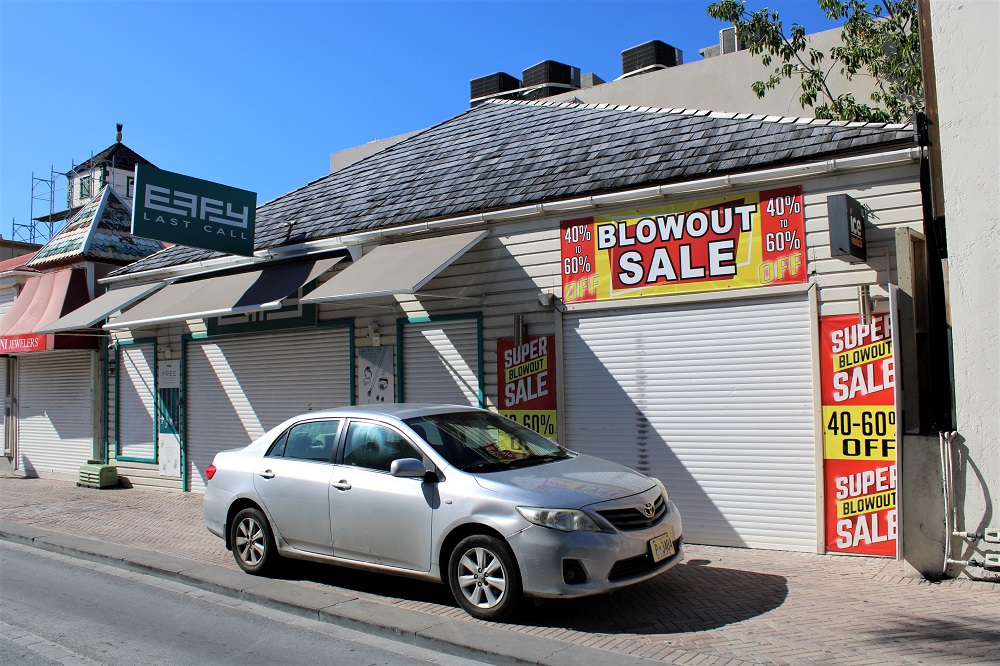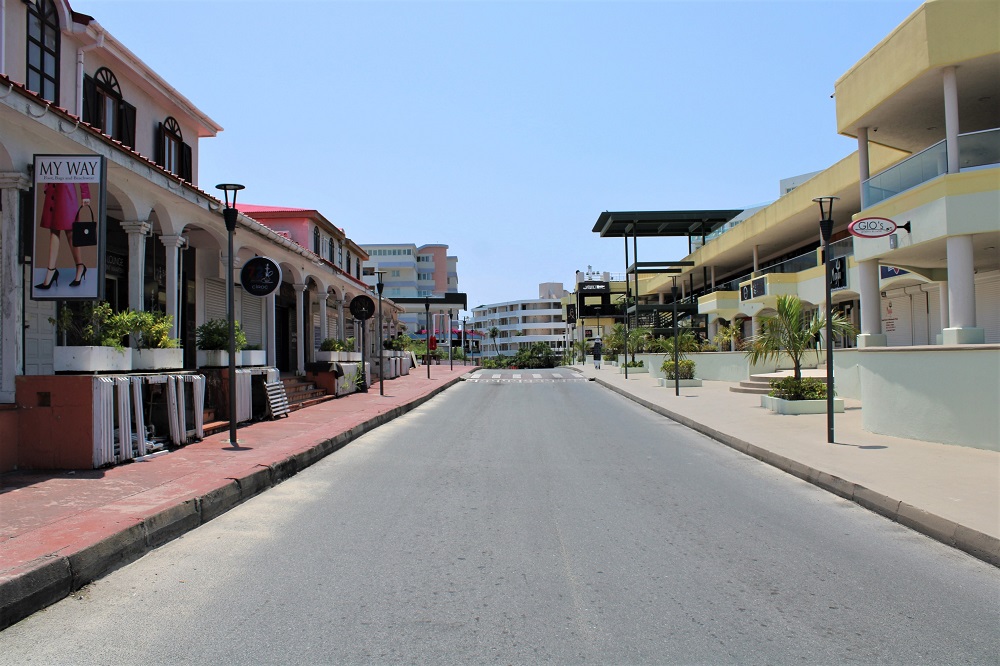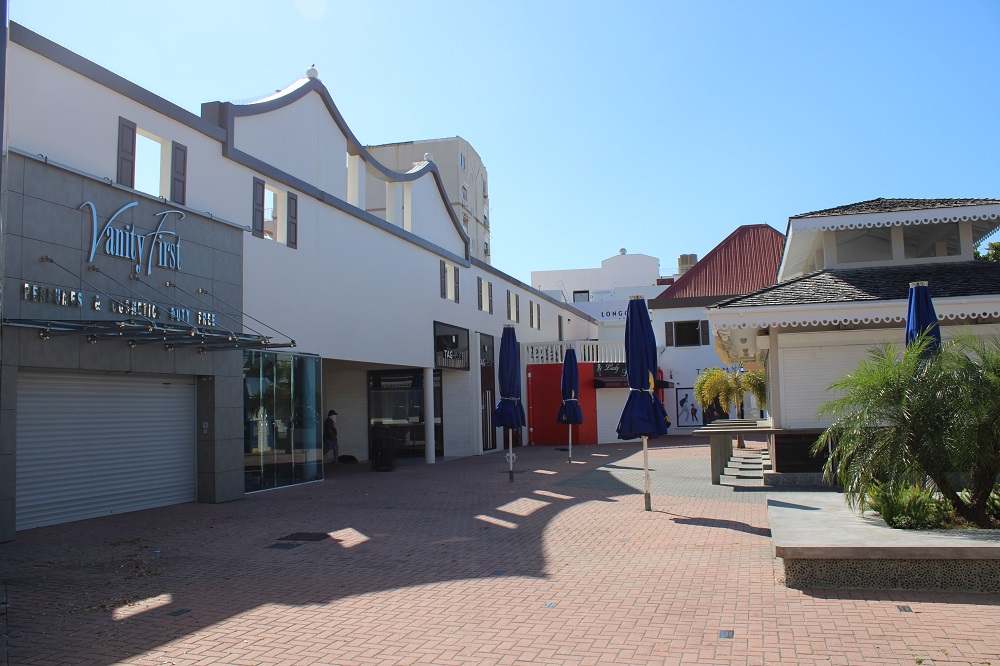Clifford Illis: Businesses and the middle class will be the hardest hit
 PHILIPSBURG — When it comes to crisis analysis in post-disaster situations, Clifford Illis is our go-to expert. After hurricane Irma in 2017, Illis’ analysis of the subsequent insurance crisis that unfolded and his detailed explanation of the ‘under-insurance‘ phenomenon was a pivotal point in our understanding of the insurance business and the fact that insurance should be seen as a financial risk mitigating tool.
PHILIPSBURG — When it comes to crisis analysis in post-disaster situations, Clifford Illis is our go-to expert. After hurricane Irma in 2017, Illis’ analysis of the subsequent insurance crisis that unfolded and his detailed explanation of the ‘under-insurance‘ phenomenon was a pivotal point in our understanding of the insurance business and the fact that insurance should be seen as a financial risk mitigating tool.
Once again, StMaartenNews.com invited Clifford Illis to share his expertise. We asked for his analysis of the COVID-19 crisis and of the post-pandemic period that the island of St. Maarten will be facing. We were also looking to get his take on the measures government will be taking with its stimulus and recovery plan, offering businesses financial aid for their employees in the form of payroll support.
Illis is an experienced accountant and independent auditor with over 25 years of expertise and knowledge of accounting, tax consultancy, and auditing services on St. Maarten. Bearing in mind the extensive list of businesses exempted from receiving payroll support and the intention to audit companies that receive financial aid from the government, we felt Illis was the right person to consult on these topics.
The economy of St. Maarten was already bad
Right out the gate, Illis first pointed out that before hurricane Irma hit in 2017, the economy of St. Maarten was already not very encouraging, and many businesses were contemplating pulling out and closing down. “I believe, as an accountant working here for the past 25 years, the investment climate was at an all-time low,” Illis explained. “There were some projects in the pipeline, but because of the instability in government – with continuous changes – none of these projects could get off the ground.”
Illis: “Then came Irma and Maria, which further tightened the noose on the economy and put more strain on the government.” It is during this critical period between Irma and the Corona Crisis that “we have seen two government changes.” Illis further elaborated that “it is safe to say that with or without the present pandemic, St. Maarten would have been facing a dire and severe economic crisis.”

Economic crisis not solely due to the pandemic
Illis urges St. Maarten people to look beyond what the government claims. He said, “Do not accept the excuse from the government that the cause of the economic crisis is solely due to the pandemic.” According to Illis, the outlook for 2020 was already worrisome. Before the pandemic, a large section of the businesses and hotels on the island were still closed. The airport was not back in full function, and several other critical infrastructural cornerstones of the economy were barely holding on. “I hope we did not forget that Holland was already supporting the government since Irma.” Illis pointed out, referring to the various forms of liquidity support the Dutch Kingdom government gave to St. Maarten.
“The government was not in a situation to meet its obligations before the pandemic and was looking for solutions to, at least, balance the budget, which was wishful thinking when you consider the weak economy and the over-inflated government apparatus,” Illis explained. “Remember, we were still in the initial stages of how to access and best use the funds made available for the recovery by the Dutch government.” Illis further explained that the government was not willing to take the advice of the CFT and the Dutch government seriously at that time and continued to back-peddle on the suggested measures, some of which were cutbacks in the high salaries of top elected officials, ministers and those of management of government-owned companies.
Illis believes that when we compare on a per capita basis, we will see that Curaçao is run with a third of the government size that St. Maarten is. “We can only conclude from this that the government is inefficient,” Illis said. “Decreasing the insane high salaries paid to directors of government-owned companies and the parliamentarians and ministers would not have solved the problem. It would have shown both the Dutch government and the local population they were willing also to bear the burden.”
Speaking on the issue of salary cuts, Illis said the majority of our leaders adamantly refuse to accept salary cuts, although their salaries are higher than their counterparts in other parts of the Dutch Kingdom.
“They also refuse to take other drastic measures that would have been required to curb the downward economic spiral the island was and still is facing and its effects on the government’s coffers. Things like the collection of taxes.” In St. Maarten, it is the employees and small businesses that bear the brunt of the tax burden, according to Illis. “Big businesses and many of the businesses owned by foreign nationals and non-nationals pay little or, in many cases, no taxes at all.”

Big businesses and taxes
At this point, StMaartenNews.com asked Illis if he thinks it is fair that those big businesses that do not pay any taxes, should receive financial support from the government. As an accountant with over 25 years of experience in St. Maarten working with companies of all sizes, Illis had some interesting insights to offer. Illis explained that these companies with foreign ownership work with ‘offshore companies’ to keep profits down by having these international companies invoicing the local companies as the middleman between their local companies and the suppliers, “thereby keeping the profits in these offshore companies.”
“Without mentioning any names, I personally know of a very wealthy business here on the island that has been running losses for over ten years, backed by one of our bigger reputable international accounting firms on the island that thought that it was perfectly normal. The losses were being caused by really high real estate interest debt.” According to Illis, the interest is legally deductible, but it is not a responsible business practice. “The company had in place a construction that showed continued losses,” said Illis. “What is not usual is that this is accepted as perfectly normal to be running for over ten years with such a huge deficit.”
Illis explained that sound business practices dictate that if the company is not profitable for several consecutive years, then something must be done to curb the trend. “I confronted the big international accounting firm concerning this practice and was told that it was perfectly normal and that they could justify this.”
Illis further pointed out that a business is intended to make a profit, and if it cannot, it should be closed down or investigated, as the question arises immediately how are the losses being sustained and who is paying to cover them. As far as Illis is concerned, it should be investigated where the money is coming from and then that source brought under scrutiny. “The inspectors in the tax office should spot this right away and not because it is a big international accounting firm, or a big company possibly with a lot of big connections, allow them to get away with this type of practice.”

Middle Class will be the hardest hit
Illis is begging us to take into account as well the fact that the middle class is going to be the hardest hit as far as being the ones that provide the stabilizing factor for the economy. “Think about all of the small businesses, be it in the tourist sector, or elsewhere, that are now closed and probably will not be able to open again,” stated Illis. According to the accountant, this is because the COVID-19 pandemic will have reshaped the business landscape. “I am going to be blunt about this,” he said. “I do not have all of the facts or any of the answers, but unless we get some bright people on board to manage what is coming, not only will the future of St. Maarten be very bleak, but we are in for severe poverty among the population.”
Illis expects that since farming is not being adequately promoted nor sufficiently supported and food will continue to be imported, because of the ‘new normal’, prices will go up significantly. Illis also expects that income will stay low or go down further in the foreseeable future. “How are we going to cope with that?” Illis asked. “Our fishing industry in Simpson Bay has been destroyed. So what are the people going to eat?”
Illis concluded with a gloomy prediction: “I am not an economist, but this is the harsh economic reality we face. Some may say that I am painting a grim picture, but those are not the ones living in Dutch Quarter, St. Peters, Over the Bank, Fort Willem, on the Dump, in Cole Bay or Cape Bay. Brace yourself St. Maarten; the worst is yet to come. The economic fall-out is being predicted to be worse than the virus.”
###
Related articles:
Clifford Illis: Clients need to seek advice when taking out insurance
Is Self-insurance an option worth considering?
Click here to Like this article on Facebook>>>


























